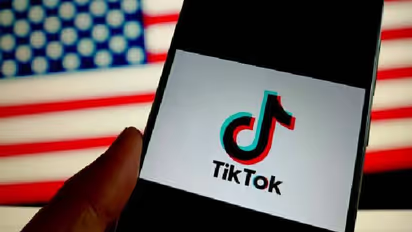Kevin O’Leary, one of the ‘Sharks’ puts forth idea to buy TikTok; But with 90% discount

Synopsis
Kevin O'Leary, known from "Shark Tank," aims to lead a bid for TikTok amidst uncertainty. His coalition plans a $20-30 billion bid, diverging from its $220 billion valuation. O'Leary eyes TikTok's US prominence but faces challenges, including replicating its algorithms. He envisions a "TikTok USA" but acknowledges the complexity of building new algorithms.
Kevin O'Leary, widely recognized as one of the sharks on the hit television show "Shark Tank," is making headlines with his intentions to spearhead a bid for TikTok. With speculations rife over the app's uncertain future amidst political tensions, O'Leary's proposal shines a light on potential avenues for keeping the platform alive within American borders.
In recent statements, O'Leary unveiled his ambition to assemble a coalition of investors to undertake the acquisition of TikTok, with an initial bid ranging between $20 to $30 billion. This bid signals a stark departure from the company's valuation in its last funding round in 2023, which pegged TikTok's worth at a substantial $220 billion.
During a recent appearance on CNBC's "Street Signs Asia," O'Leary explained on his keen interest in procuring TikTok, highlighting its status as a pivotal hub for entertainment and business in the United States. However, he acknowledged the potential hurdles associated with the acquisition, particularly the exclusion of TikTok's user preference-driven algorithms, which have been instrumental in its success, stated a report on BENZINGA.
Despite the challenges posed by the Chinese government's hesitancy to relinquish control over these algorithms, O'Leary remains determined in his pursuit. He envisions a strategic overhaul of TikTok, envisioning a transformation into a domestically-owned platform potentially under the moniker "TikTok USA."
However, O'Leary's vision isn't without its complexities. Crafting a new algorithm from the ground up could prove to be a formidable task, both in terms of time and resources. Moreover, there's uncertainty surrounding whether a new algorithm could replicate the addictive appeal and efficacy of TikTok's current algorithms, which have been pivotal in its meteoric rise.
"This is perhaps the most intricate deal ever witnessed in social media, and the prospect of building a new algorithm presents its own set of challenges," O'Leary remarked. "Yet, it's a compelling proposition, and I'm enthusiastic about its potential," he added.
Check the Breaking News Today and Latest News from across India and around the world. Stay updated with the latest World News and global developments from politics to economy and current affairs. Get in-depth coverage of China News, Europe News, Pakistan News, and South Asia News, along with top headlines from the UK and US. Follow expert analysis, international trends, and breaking updates from around the globe. Download the Asianet News Official App from the Android Play Store and iPhone App Store for accurate and timely news updates anytime, anywhere.